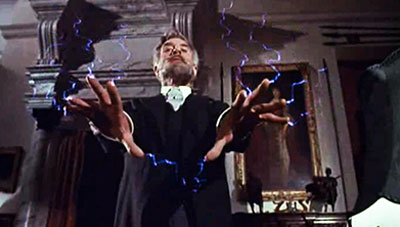A Clash of Paradigms
By Milton J. Bennett

The extremist Islamic State is positioning itself against the rest of the world. Since much of that world is Islamic, Huntington’s “clash of civilizations” is more clearly than ever before a simplistic and mistaken explanation. There is a clash occurring, but it is not simply a collision of beliefs or ideologies. The clash is a more profound one of epistemological paradigms – specifically, a clash of absolutism and relativism.
ISIS is a vivid example of what Max Born describes as “the most dangerous people in the world – people who think that there is only one truth, and that they possess it.” In support of this observation, a recent article in Atlantic presents evidence that ISIS is composed of true believers pursuing an apocalyptic vision in which most of them will be killed fighting the anti-Messiah, paving the way for the return of Christ in the end times.
But wait! Haven’t we heard that story before? Yes, from true believers in the other civilization. Novels and literature detailing the fundamentalist Christian narrative of apocalyptic end times are the most popular offerings of Christian publishers. And in real-world enactment of the story, some influential US American groups support the Israeli occupation of Palestine not out of Zionist zeal, but because in their view it is a necessary step towards The End.
This is not just about religion. As Eric Hoffer originally pointed out, there are true believer scientists, scholars, and social workers. Absolutism is alive and well on both Wall Street and Main Street. It doesn’t really matter what you think the absolute truth is – the issue is thinking that there is one, and that you know what it is.
The contrast to absolutism is relativism, sometimes known as “critical thinking.” Relativists assume that things and events – including themselves — exist in some context. Religious tenets exist in the context of Middle Eastern tribal beliefs, Asian guru teaching, Roman church hierarchy, etc. Scientific knowledge exists in the context of European enlightenment, and financial operations exist in the context of capitalist or Marxist economic systems. The relationship to a particular context doesn’t make something right or wrong – that is a different question. Relativism just rejects the idea of an objective universal truth.
Put in these stark terms, it is clear that the paradigm clash is occurring all over the world in various forms, not just in the ISIS-driven collision of religious ideology. Financial absolutists who see their success as a result of natural superiority clash with social relativists who point to the context of privilege that perpetuates gross inequity. True believers in allopathic medicine clash with holistic practitioners who study the personal context of disease. And true believers in political exceptionalism clash with those who see every political philosophy in its own social context.
While the dangers of absolutism are clear, relativism also can lead to a dangerous paralysis of action in the name of “tolerance.” For the time being, we should at least avoid pitting one truth against another, which only strengthens the absolutist side of the clash.
